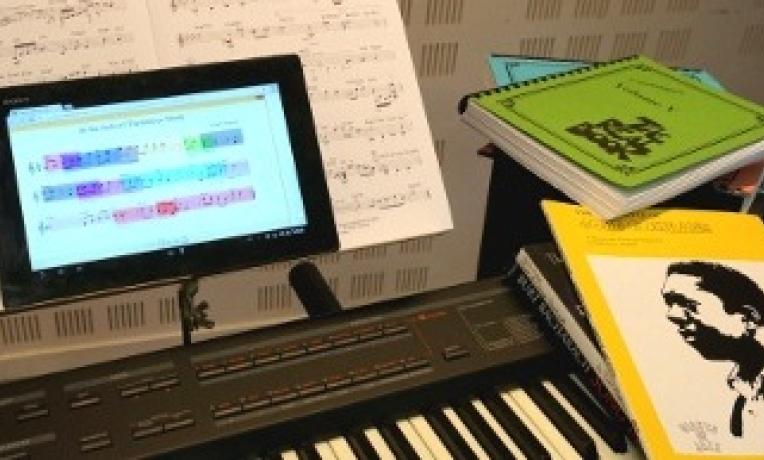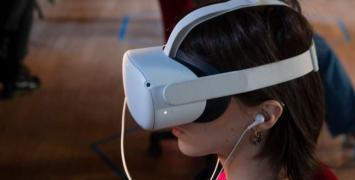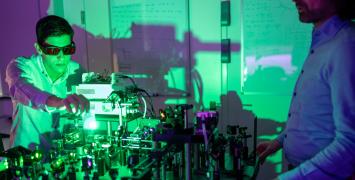Can machines crack the mystery of music creation?
Who has not wanted to compose as catchy a song as Bob Dylan, Paul McCartney or Charlie Parker? French researcher Dr François Pachet has always been fascinated by the mystery of how these great musicians managed to create these amazingly iconic, and strangely addictive, melodies. Thanks to his ERC Advanced Grant, Pachet and his team are working on a software package, ‘FlowMachines’, which will help musicians or writers to explore the magic of creativity and compose music or write books in an easier way. By deciphering the intriguing relations between technology and musical creativity, he aims to offer clues to creators who wish to turn style and its various dimensions into malleable and interactive objects.

The idea behind Pachet's project is that when you want to create something really different, you need to invent your own style. "New things usually come from taking existing styles and adding a new element; a chord sequence, a new rhyme or a different rhythm for instance. If you take Picasso, the way he invented his style was by playing with, and distorting, the styles of his predecessors. Picasso was actually a very good painter in the style of Velazquez and others before him. By playing with their styles, Picasso developed his own," explains Pachet.
Watching this video you are accepting Youtube cookies policy
Flow Machines: can machines help us to be more creative?
He is working on the development of a computer-based compositional tool that makes developing your own individual style easier. This so-called ‘Flow machine’ works with sequential data such as musical notes, chords or words in texts. A string of this data makes a corpus, which can be for instance all music composed by Charlie Parker or all texts written by Marcel Proust. "What we are trying to do is to add into the corpus new ideas, which we call constraints. It means that a person using the ‘Flow machine’ can decide to compose blues in the style of Charlie Parker but to have all the notes different" says Pachet.
Thanks to the ‘Flow machine', the constraints are added digitally and the user can quickly see the result and decide whether the musical phrase is what he had in mind. If it is not, they can alter the constraints. "A trick of this project, in a positive way, is to turn the creativity question into a mathematical problem" emphasises the researcher.
What’s old is new again
To conduct their research, Pachet's team develops new technologies based on models invented by Russian mathematician Andrey Markov. Markov models have many applications: from economic evaluations to Google's ranking algorithms. Markov chains are well-known tools used to model the statistical properties of temporal sequences. Sequential data are the equivalent of Markov chains in the ‘FlowMachines’ project. "What makes our experiments innovative is that no one was able until now to control the degree of plagiarism when replicating these chains. Recently, we have come up with new results where our ‘Flow machine’ was actually able to do this. This is a real breakthrough," notes Pachet.
According to him, the ‘Flow machine’ will not produce pastiches, but new music and texts. "We create new sequences in a way that people can still recognize the original style of a musical piece without having to use any of the successive items that were present in the original corpus. What we can do is to take all jazz from the 1920s, 30s, 40s and 50s and compose a new piece where only ten per cent of it originates from the 20s for example."
Asked about what inspired him to call his project ‘FlowMachines’, Dr Pachet responded that the idea came from a concept developed by Hungarian-American psychologist Mihaly Csikszentmihalyi who describes ‘flow’ as the state of mind of people who have found the ideal equilibrium between boredom and total absorption in what they are doing. The ‘Flow machine’ can act as a tool to help people to achieve this state of flow.
Listen to Pachet’s interview here
Comic strip, Morricone and his future plans
Pachet, who is also a jazz musician and has released several CDs, has plans to publish a comic strip about his project. He also wants to write a book about the series of interviews he conducted with famous composers to advance his research. "A few weeks ago we interviewed Ennio Morricone and asked him about the melodies he had composed for Once Upon a Time in the West and so on. We did the same with Ivan Lins, one of the best composers in Brazil" Pachet adds. His idea is to try to understand why people intuitively like the melodies they composed.
Pachet has worked at Sony Computer Science's lab, a "blue sky" research centre based in Paris, for the last sixteen years. This environment has enabled him to focus on his research uninterrupted. "I think there is a lot of convergence between the mission of the ERC and the mission of this lab. The ERC grant has given me the freedom to hire people, to travel to meet musicians, and to buy equipment. But the grant also brings you recognition and the confidence of the people you meet in your work."
The result of Pachet's project could be soon put to the test in a very public way. Last year, the researcher obtained a licence to play in the Paris metro where he plans to go with his ‘Flow machine’ to gauge people's reactions. "The Paris metro is the first scene in the world with millions of people taking the metro every day. To be honest, I have not gone there yet but I will take my chance as soon as I feel the courage to conduct my experiments in the spotlight offered by this renowned location" concludes Pachet.






